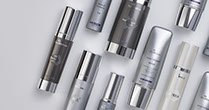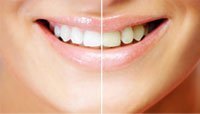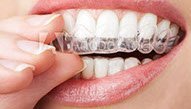EXPERIENCE ELITE CARE
Snoring Appliances and Sleep Apnea
Snoring Appliances
A mouthpiece, sometimes called an oral appliance, may help some people who have mild sleep apnea. Your doctor also may recommend a mouthpiece if you snore loudly but don't have sleep apnea. The mouthpiece will adjust your lower jaw and your tongue to help keep your airways open while you sleep.
Sleep Apnea
Sleep apnea (AP-ne-ah) is a common disorder in which you have one or more pauses in breathing or shallow breaths while you sleep. Breathing pauses can last from a few seconds to minutes. They may occur 30 times or more an hour. Typically, normal breathing then starts again, sometimes with a loud snort or choking sound. Sleep apnea usually is a chronic (ongoing) condition that disrupts your sleep. When your breathing pauses or becomes shallow, you’ll often move out of deep sleep and into light sleep.
As a result, the quality of your sleep is poor, which makes you tired during the day. Sleep apnea is a leading cause of excessive daytime sleepiness.
Most people who have sleep apnea don't know they have it because it only occurs during sleep. A family member or bed partner might be the first to notice signs of sleep apnea. The most common type of sleep apnea is obstructive sleep apnea. In this condition, the airway collapses or becomes blocked during sleep. This causes shallow breathing or breathing pauses. When you try to breathe, any air that squeezes past the blockage can cause loud snoring. Obstructive sleep apnea is more common in people who are overweight, but it can affect anyone. For example, small children who have enlarged tonsil tissues in their throats may have obstructive sleep apnea.
Untreated sleep apnea can:
- Increase the risk of high blood pressure, heart attack, stroke, obesity, and diabetes
- Increase the risk of, or worsen, heart failure
- Make arrhythmias (ah-RITH-me-ahs), or irregular heartbeats, more likely
- Increase the chance of having work-related or driving accidents
Sleep apnea is a chronic condition that requires long-term management. Lifestyle changes, mouthpieces, surgery, and breathing devices can successfully treat sleep apnea in many people.
Major Signs and Symptoms
One of the most common signs of obstructive sleep apnea is loud and chronic (ongoing) snoring. Pauses may occur in the snoring. Choking or gasping may follow the pauses. The snoring usually is loudest when you sleep on your back; it might be less noisy when you turn on your side. You might not snore every night. Over time, however, the snoring can happen more often and get louder. You're asleep when the snoring or gasping happens. You likely won't know that you're having problems breathing or be able to judge how severe the problem is. A family member or bed partner often will notice these problems before you do.
Not everyone who snores has sleep apnea.
Another common sign of sleep apnea is fighting sleepiness during the day, at work, or while driving. You may find yourself rapidly falling asleep during the quiet moments of the day when you're not active. Even if you don't have daytime sleepiness, talk with your doctor if you have problems breathing during sleep.
Other Signs and Symptoms:
- Morning headaches
- Memory or learning problems and not being able to concentrate
- Feeling irritable, depressed, or having mood swings or personality changes
- Waking up frequently to urinate
- Dry mouth or sore throat when you wake up
In children, sleep apnea can cause hyperactivity, poor school performance, and angry or hostile behavior. Children who have sleep apnea also may breathe through their mouths instead of their noses during the day
Go Back



